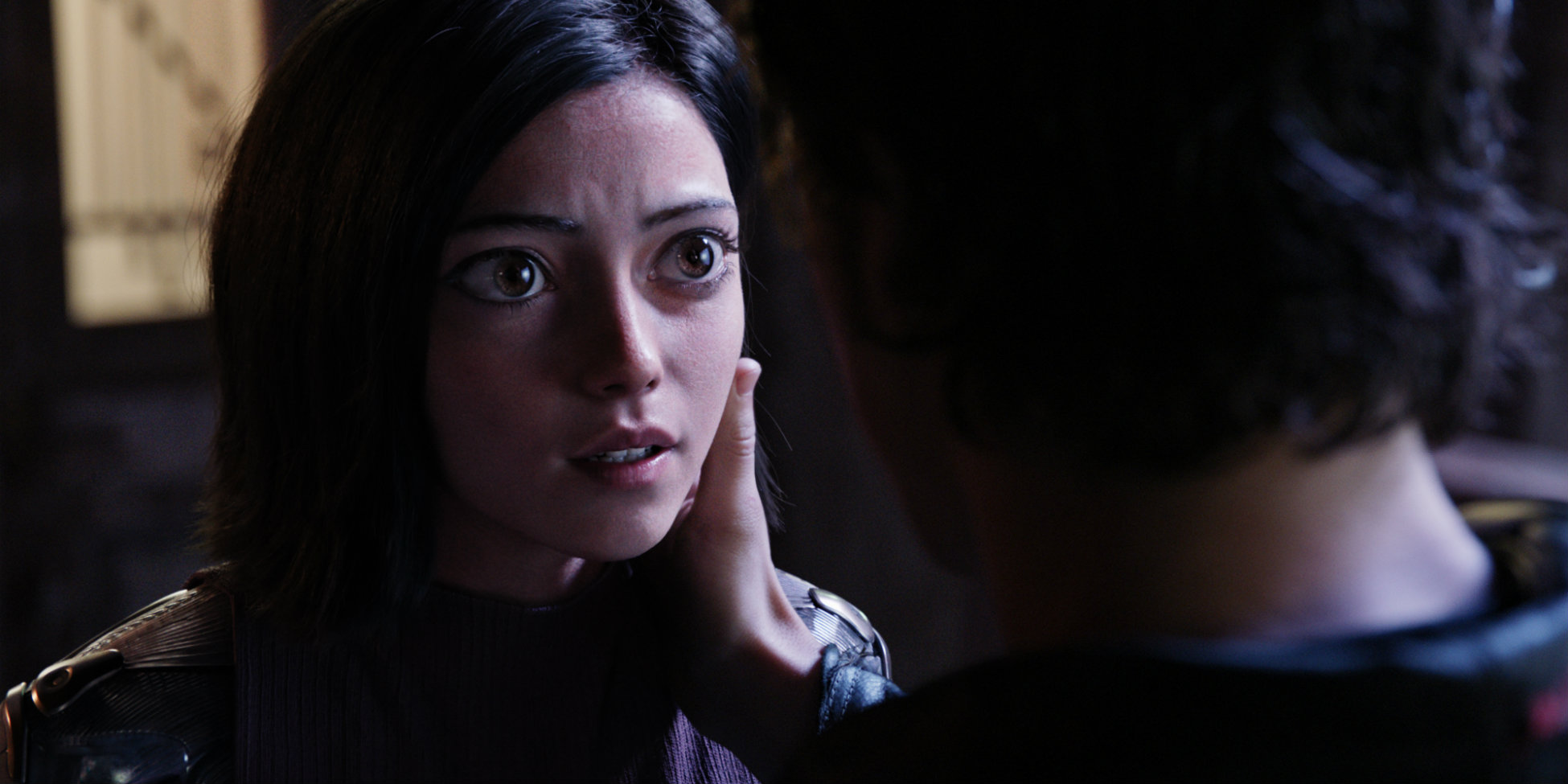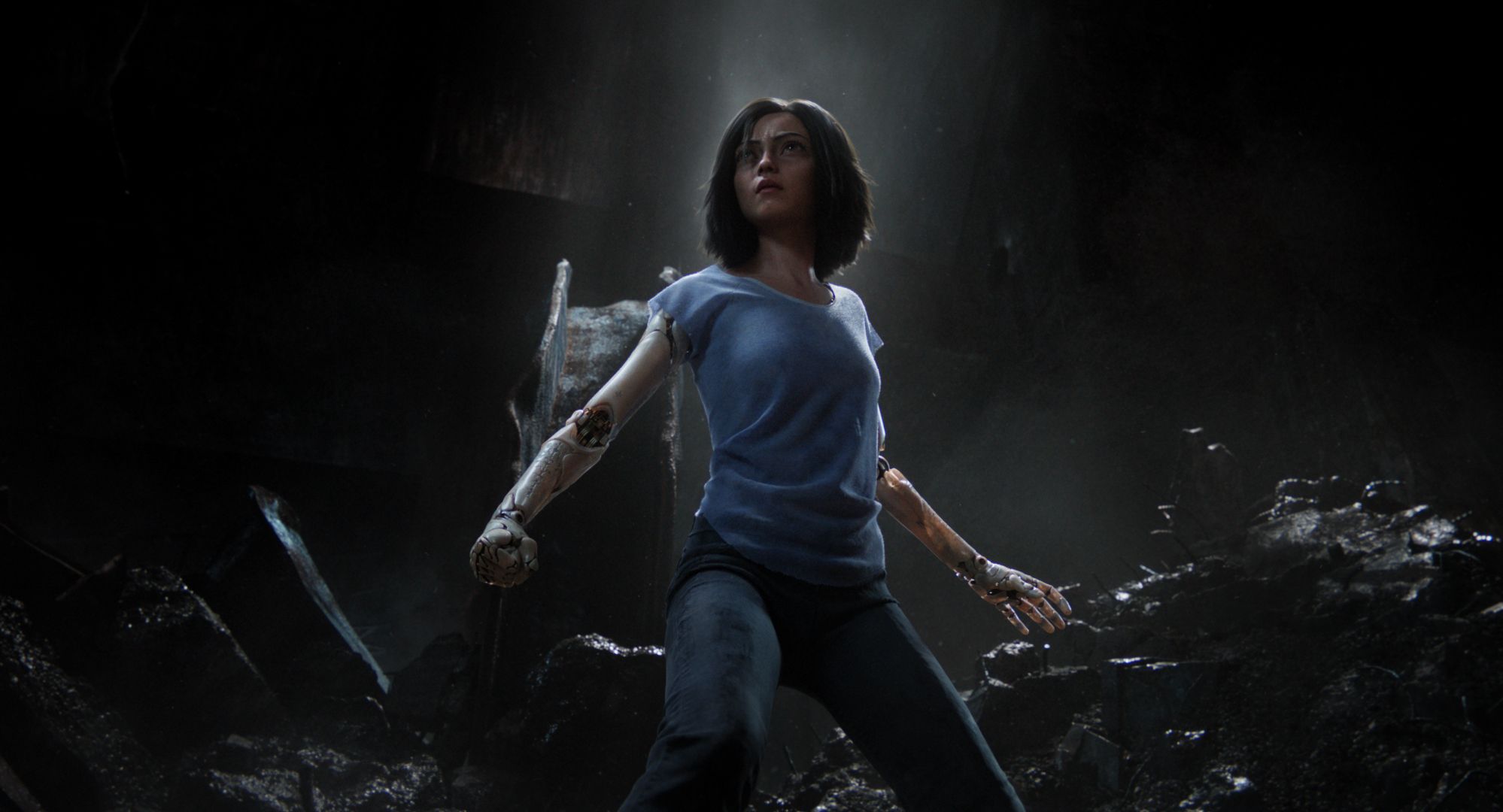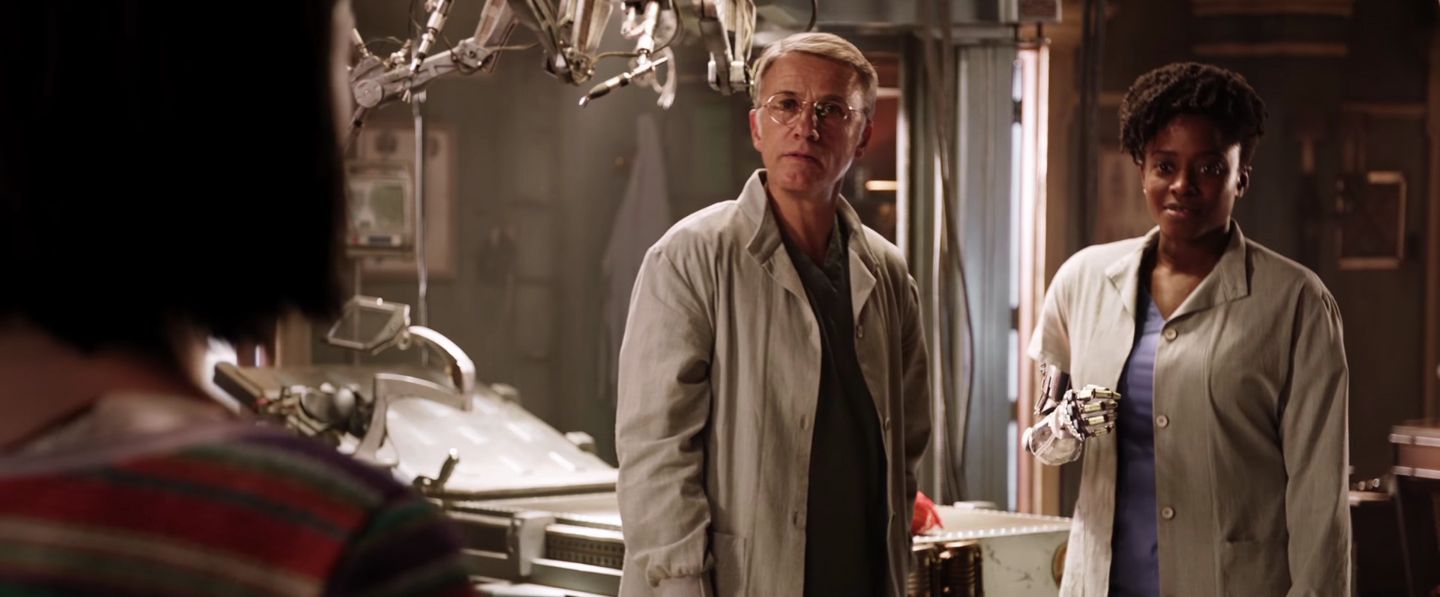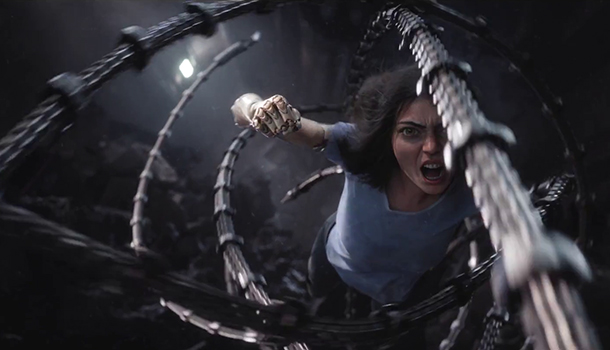
With the technological progression of visual effects in today's filmmaking, who needs a story anymore to dazzle audiences. It's rare to find filmmakers in today's modern era of filmmaking that successfully manage to balance both visual effects with a strong and compelling story. James Cameron is one of the rare filmmakers that comes to mind in that regard along with Steven Spielberg and Peter Jackson. Cameron's career has always been about pushing the boundaries of technology with each film he does, but he also always provides a story and characters that the audience can connect with the visuals (Avatar is debatable if it leaned more towards being a visual piece rather than storytelling). With Alita: Battle Angel, Cameron takes one of his pet projects that's been in development hell for over a decade and gets it off the ground finally both as a producer and co-writer of the films script. Rather than directing it himself, he places the story in the hands of Sin City and visionary filmmaker Robert Rodriguez, to bring it to the screen with the use of scene-stealing technology. Drawing on themes that Cameron utilized in his other screenplays, he writes a script that's an adventure about hope and empowerment. While the film delivers on the visual front proving to be utterly breathtaking to watch on the big screen, the films story struggles to reach the heights of it's technological side.
Watch the trailer here:
https://www.youtube.com/watch?time_continue=1&v=w7pYhpJaJW8
The plot for Alita: Battle Angel centers around a deactivated female cyborg being revived with no memories of who she was prior, setting her off on a journey to rediscover who she is. While doing so, she becomes a lethal and dangerous being. It's ironic that Alita is playing in theaters the same time that Captain Marvel is playing which also deals with a main female character trying to rediscover her past through memories she has of her life prior with both possessing great strength both physically and mentally. Both movies are empowering films for women due to the arc of their female counterparts whether human or machine, further driving home the belief that women are the key to Hollywoods future. Alita's story is not one that's original or innovative, this story has been told before and done over by other filmmakers much like Cameron's Avatar can be compared with ten other films with the same exact plot. Given that James Cameron has a tendency to go further with his characters and plots than most action directors, it's a bit disappointing to see what's essentially an intriguing yet underdeveloped concept being used to service impressive visual effects which were always meant to be the true focus of the film. While the visual effects are quite impressive to borderline groundbreaking, they aren't enough to overcome the shallowness of the script that becomes noticeable as the story progresses. Despite the stories shortcomings, what it does right is deliver a strong and likeable female heroine to the audience that is tough with a sympathetic storyline surrounding her. Cameron excels with taking stories surrounding broken women and building them up throughout the course of the film to make them warriors by the end, He makes no exception here with Alita, she also learns to love along the process with her relationship with the character Hugo played by Keean Jonson. The film was always intended to be eye candy and manages to be just that with it's visual effects that's backed by a strong performance from Rosa Salazar as Alita.

As far as acting, writing, and directing goes, Alita works because of the strong performance from it's main actress whose backed by a strong supporting cast. Rosa Salazar is the soul of the film and delivers a strong and believable performance as the confused yet determined female android. Christoph Waltz does a strong job playing Dr. Dyson Ido, a compassionate doctor who knows that deep down inside the shell of the abandoned cyborg is a heart and soul of a young girl with a remarkable past, whose also is the one being that can break the cycle of death and destruction left behind from Tiphares. Waltz's part in the film is minimal but the performance he gives makes him comes across as a futuristic Geppetto. Mahershala Ali does a solid job playing the films main antagonist who rigs Motorball combat matches despite his character coming across as being a generic one-dimensional villain. Jennifer Connolly does a likeable job though her character suffers the same issue as Ali's in terms of being underdeveloped. In terms of directing, Robert Rodriguez pushes the boundaries of technology and delivers what's easily the most visually impressive film of his directing career. It also manages to be his biggest budget to date with $175-200 million put on the screen to appeal to international audiences in compensation for the film most likely failing to make back it's budget domestically. Rodriguez has proven to be a visionary filmmaker himself over the years with Sin City showcasing a distinct style the director has in terms of the way his films look. Written by James Cameron and Shutter Island's Laeta Kalogridis, Alita has the outline of a strong and powerful emotional story about a female andriod who simply wants to remember her past, it lacks the depth to truly expand on what is clearly an interesting and intriguing concept. The film tackles themes such as memories, love, morality, technological advancements, war, and greed. These are themes that Cameron has thrived on as a screenwriter since the beginning of his career with The Terminator. The film's ultimate message says that who one really is can be found in their heart.

On the films technical side, the visual effects make the film worth watching with cinematography that further delivers the impact the visuals have on the audience. First announced in 2003, production on the film was halted due to Cameron's work on Avatar and it's sequels. Using the same kind of technology that Cameron used for Avatar, Alita is brought to life in a way which makes her stunning to be a complete CGI character. The kiss scene between Alita and Hugo is one of the best moments of the film both emotional and visually appealing. The films score is good with the film moving at a brisk pace taking audiences on a ride that ultimately proves to be a visual spectacle while never feeling too slow. With the character of Alita, Cameron manages to once again erase the dark notion and stereotype that machines are evil and humans are good. He takes the two roles and reverses them delivering a heroine that audiences can get behind and cheer for, while hoping for the films success to give her more sequels. Hopefully if those sequels ever get made, they will contain stronger scripts that go more in depth with the story and characters.

Final Verdict:
If you want a visual ride, this is the one to see. If you want deep storytelling, skip it and wait for Redbox.





No comments:
Post a Comment